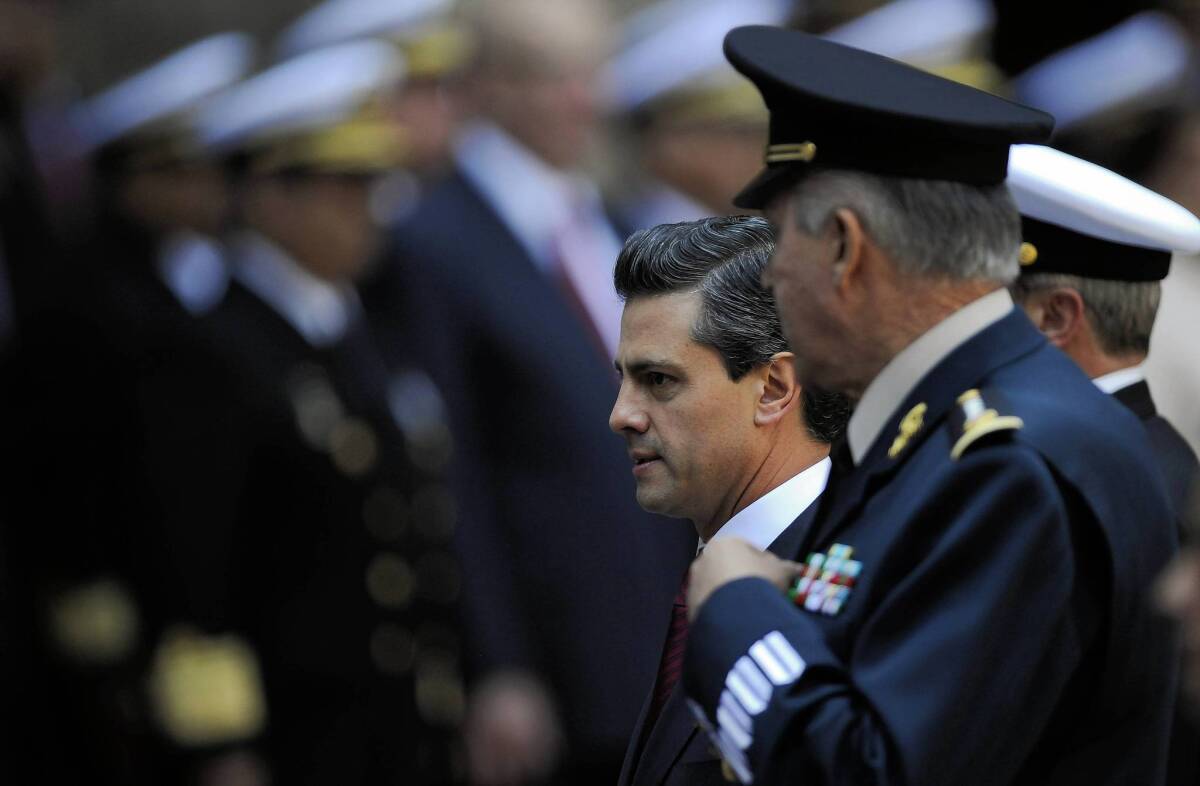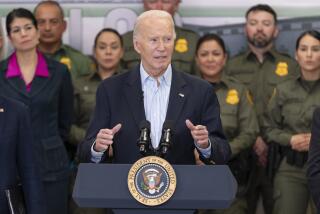Mexico civic groups seek Congress debate on gendarmerie

MEXICO CITY — Some of the most important civic groups in Mexico are imploring President Enrique Peña Nieto to let Congress debate the wisdom of creating a new paramilitary police force, or gendarmerie, to combat the persistent scourge of violence here.
The civic groups are concerned that Peña Nieto will create the new force by presidential decree, instead of introducing a bill in the Legislature. Without a vigorous debate in Congress, the groups fear, the gendarmerie may suffer from an ill-defined mandate and lack important human rights protocols, among other things.
“There are meaningful and legitimate doubts about the project,” security analyst Alejandro Hope of the Mexican Competitiveness Institute said in an interview Wednesday. “So I think it’s fair to ask for a discussion.”
Hope’s institute was one of nine groups, including victims’ rights and police-reform organizations, that issued a joint statement this week calling for a debate in the Legislature on “costs, benefits and alternatives” to the plan.
The creation of a national gendarmerie was one of the few proposals differentiating candidate Peña Nieto’s security strategy from that of his predecessor, Felipe Calderon. The former president’s controversial decision to use the military to fight organized crime in Mexico resulted in more than 70,000 deaths in a six-year period.
The new administration, which took power Dec. 1, has decided to keep the military on the streets for now. At the same time, it is training about 4,000 potential gendarmes, drawn from the Mexican army and navy. In an interview with the newspaper Excelsior, the national security commissioner, Manuel Mondragon, said the goal was to put 10,000 gendarmes on the streets by the beginning of next year and expand the force to 40,000 members by 2018.
The gendarmerie will have military training but be under civilian control and will focus on fighting crimes such as robbery and extortion. If the force is successful, the government could lessen its reliance on the military, which has been accused of serious abuses by human rights groups.
But by creating a new force from scratch, Peña Nieto risks trying the patience of Mexicans, who continue to live with devastating levels of violence. According to the Mexico City newspaper Reforma, the country saw 2,351 organized-crime-related deaths in the first 100 days of Peña Nieto’s government, 13 more slayings than in the last 100 days of Calderon’s administration.
This month, Peña Nieto asked Mexicans to wait a year before judging the effectiveness of his security strategy.
The civic groups are split on whether the gendarmerie would be a good idea.
Hope said the new force would probably clash with Mexico’s 38,000-member federal police over jurisdictional issues, particularly if those details aren’t worked out before the gendarmes are deployed. Hope also noted that three European nations, Austria, Belgium and Greece, recently folded their gendarmeries into their national police forces in part to avoid such problems.
Edgar Cortez, an investigator with the Mexican Institute for Human Rights and Democracy, said that the gendarmerie might work, but he added that the new government hadn’t done enough to explain the details.
Cecilia Sanchez of The Times’ Mexico City bureau contributed to this report.
More to Read
Start your day right
Sign up for Essential California for news, features and recommendations from the L.A. Times and beyond in your inbox six days a week.
You may occasionally receive promotional content from the Los Angeles Times.






